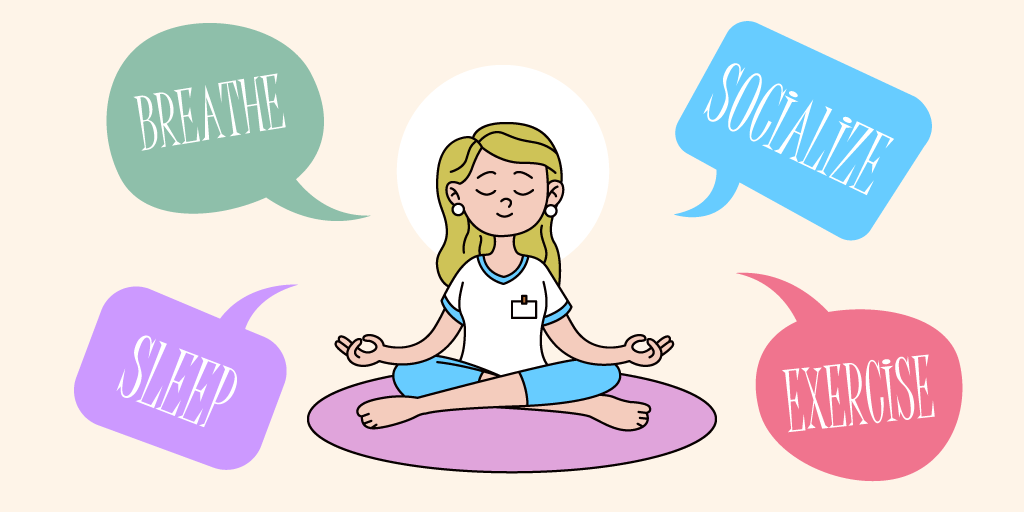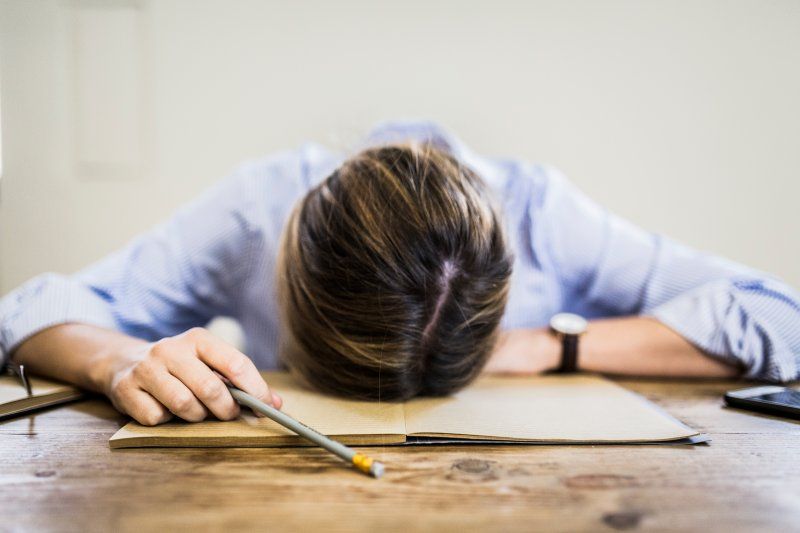5 Things to Do If You Are Feeling Worthless
5 Things to Do If You Are Feeling Worthless

Feelings of worthlessness often involve a sense of insignificance in oneself and are strongly linked to hopelessness and self-blame.1
Such feelings are often a common symptom of depression, but can also arise due to things such as low self-esteem, neglect, abuse, trauma, or difficult situations that pose a threat to a person's sense of self.
Feeling worthless can create significant distress and make it difficult to function normally in daily life. You might find it difficult to feel motivated to pursue your goals when you feel that nothing you do is right or that none of your efforts will make a difference. Because of this, it is important to find ways to manage these difficult feelings and seek help when needed.
Causes of Worthlessness
Feelings of worthlessness can be caused by a number of different factors. Upbringing, social experiences, explanatory style, stressful events, and mental health conditions may all play a role. Some reasons why you might be struggling with such feelings include:
Childhood Trauma
You may have had negative childhood experiences that have left a lasting mark. Neglect, abuse, and maltreatment during childhood can all play a role in the development of feelings of worthlessness. Children who are abused or who are frequently criticized by parents or other caregivers may carry those feelings of insignificance into adulthood. Research has shown that these early interpersonal traumas are linked to later feelings of worthlessness.2
Seeing Negative Events as Your Fault
You may attribute negative events to your own actions or characteristics. People who are prone to attributing negative events to internal causes may be more likely to experience symptoms of depression, including worthlessness.
Past Criticism
You may have been criticized by others in the past. Negative experiences where a person has been degraded or faced criticism from others can also leave people feeling as if they lack value.
Difficulty Handling Stress
You might be having trouble coping with stress. Both acute and chronic stress can take a toll on a person's perceptions of themselves. You might feel worthless after experience a serious setback such as financial problems, divorce, or job loss.
Sign of a Mental Health Condition
You might have a mental health condition. Mood disorders such as major depressive disorder are often marked by symptoms such as shame, guilt, hopelessness, and worthlessness.3 Such symptoms create distress and make it difficult to manage usual daily tasks.
What You Can Do If You're Feeling Worthless
If you are experiencing feelings of worthlessness, there are small, actionable steps you can take that may help you start to feel better. Here are some ideas that can help.
Speak Kindly to Yourself
People who feel worthless often engage in negative thinking and self-talk. It may be challenging at first, but focus on treating yourself with kindness. When you notice negative self-talk, look for ways that you can reframe those thoughts in a more positive or realistic way. Instead of thinking "I hate myself" or "I'll never be able to do it," for example, you might say, "I can do small things each day to improve."
Pay Attention to When Worthlessness Strikes
Sometimes these negative feelings arise in response to certain situations, thoughts, experiences, or even people. Start noticing when these feelings emerge, what is happening when they occur, and what type of thoughts might be contributing. This is one way to help combat the negative rumination that might be fueling feelings of inadequacy.
Keep a Gratitude Journal
Worthlessness can creep in when you find yourself comparing your own life unfavorably to the lives of others. Rather than falling into the trap of only looking at the ways in which it seems you are lacking, consider keeping a gratitude journal where you spend a little time each day thinking about the things you are grateful for. Refocusing your thoughts in this way can help protect you from the negative effects of comparison and envy.
Do Something for Someone Else
Sometimes when you are feeling worthless, focusing your attention on something other than yourself can help. Research has shown that engaging in prosocial activities like volunteering for your community or helping someone else in need can have a positive effect on a person’s happiness and well-being.4 Helping others can also help you feel a greater sense of connection and purpose.
Try a Mental Health App
There are a number of different mobile apps devoted to improving mental health. Some apps may provide tools such as positive affirmations, mindfulness training, or exercises rooted in cognitive-behavioral therapy (CBT) that are designed to help you identify and change patterns of negative thinking.
How to Get Help If You're Feeling Worthless
It's important to remember that feeling worthless can also be a sign of an underlying mental health condition. If such feelings are persistent, distressing, or make it difficult to cope with everyday tasks, talk to your primary care provider or contact a mental health professional.
Your primary care provider may ask you about your feelings and other symptoms you have been experiencing. They may also ask you to fill out a questionnaire to screen for symptoms of depression or anxiety. You may also have a physical exam and lab tests to rule out medical conditions that might contribute to symptoms of depression.
You might also want to consider trying online therapy. Research suggests that online therapy can be as effective as traditional face-to-face treatment. Online therapy presents an accessible and often affordable way of getting help for mental health concerns. Services that provide online therapy can vary in terms of what they offer, their price, and how therapy sessions are conducted. In many cases, options include online chat, video conferencing, email, and phone options.
Here's what our satisfied clients are saying...
VISIT US
HOURS
HOURS
CONTACT US
License MFT 29367











Share On: